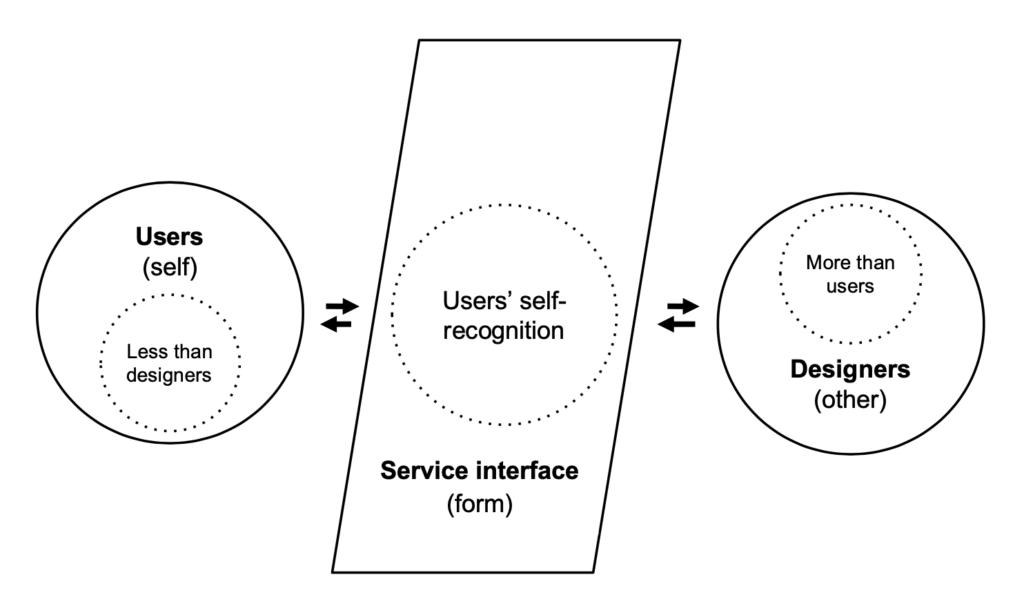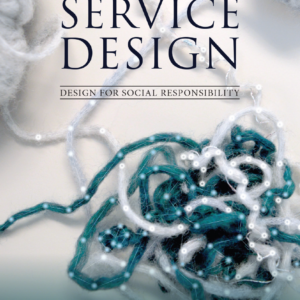Secomandi, F., & Van Amstel, F. M. C. (2025). Coerced Recognition at the Service Interface: A Design Ethics Framework for Unveiling the User Oppression. Journal of Human-Technology Relations, 3, 1–25. https://doi.org/10.59490/jhtr.2025.3.7745

Abstract: This research expands the phenomenologically-inspired HCI branch with an original design ethics framework that reconceptualizes user interfaces as service interfaces. This shift towards services is deemed necessary to grasp how people can be oppressed by designers while trying to use computing services such as artificial intelligence. Drawing on the critical integration of Peter-Paul Verbeek’s theory of technology-mediated morality with Georg W. F. Hegel’s master-slave dialectic, we examine a particular aspect of user oppression: coerced recognition. This entails the phenomenological-dialectical process in which users are coerced to recognize themselves as lesser beings compared to designers when giving form to service interfaces. The phenomenon of coerced recognition unveils how user oppression can be produced by design while pointing towards the possibility of liberation through mutual recognition between users and designers.

